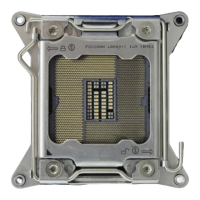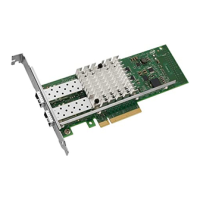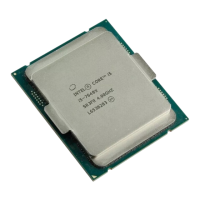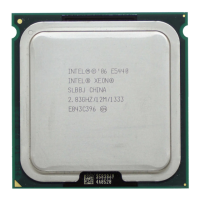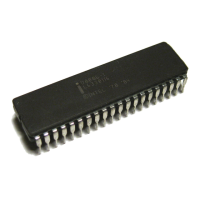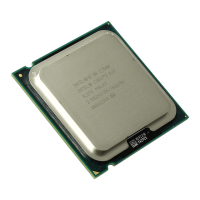Order Number: 334785-002 Intel
®
Xeon
®
Phi™ Processor x200 Product Family TMSDG
53
Quality and Reliability Requirements
A Quality and Reliability
Requirements
A.1 Thermal/Mechanical Solution Stress Test
Intel evaluates reliability performance based on the use conditions (operating
environment) of the end product by using acceleration models.
The use condition environment definitions pro
vided in the tables below are based on
speculative use condition assumptions, and are provided as examples only.
Based on the system enabling boundary condition,
the solder ball temperature can vary
and needs to be comprehended for reliability assessment.
Table A-1. Example Thermal Stress Test: Use Condition Environment Definitions
Use Environment
Speculative
Stre
ss
Condition
Example
Use Condition
Example
7 yr. Stress
Equiv
alent
Example
10 yr. Stress
Equiva
lent
Purpose/
Fai
lure
Mechanism
Slow small internal gradient changes
d
ue to external ambient
(temperature cycle or externally
heated)
Fast, large gradient on/off to max
o
perating temperature (power cycle
or internally heated including power
save features)
Tem pe ratu re
Cy
cle
DT = 35 - 44 °C
(solder joint)
550-930 cycles
Tem p C ycl e
(-25 °C to 100
°C)
780-1345 cycles
Temp Cycle
(-25 °C to 100
°C)
Solder joint
fatigue, via
barrel cracking,
and Thermal
Interface
Material (TIM)
separation/
disbond under
thermal
mechanical
stresses
High ambient moisture during low-
p
ower state (operating voltage)
THB/HAST T = 25 - 30 °C
85% RH
(ambient)
110-220 hrs
at 110 °C and
85% RH
145-240 hrs
at 110 °C and
85% RH
Corrosion and
material
migration
induced by
moisture/
temperature
High Operating temperature and
s
hort duration high temperature
exposures
Bake T = 95 - 105 °C
(contact)
700 - 2500 hrs
at 125 °C
800 - 3300 hrs
at 125 °C
Creep-induced
failure
mechanisms,
for example
contact
relaxation,
solder ball
creep, and
thermal TIM
degradation
Material used will not have deformation or degradation in a temperature life test.

